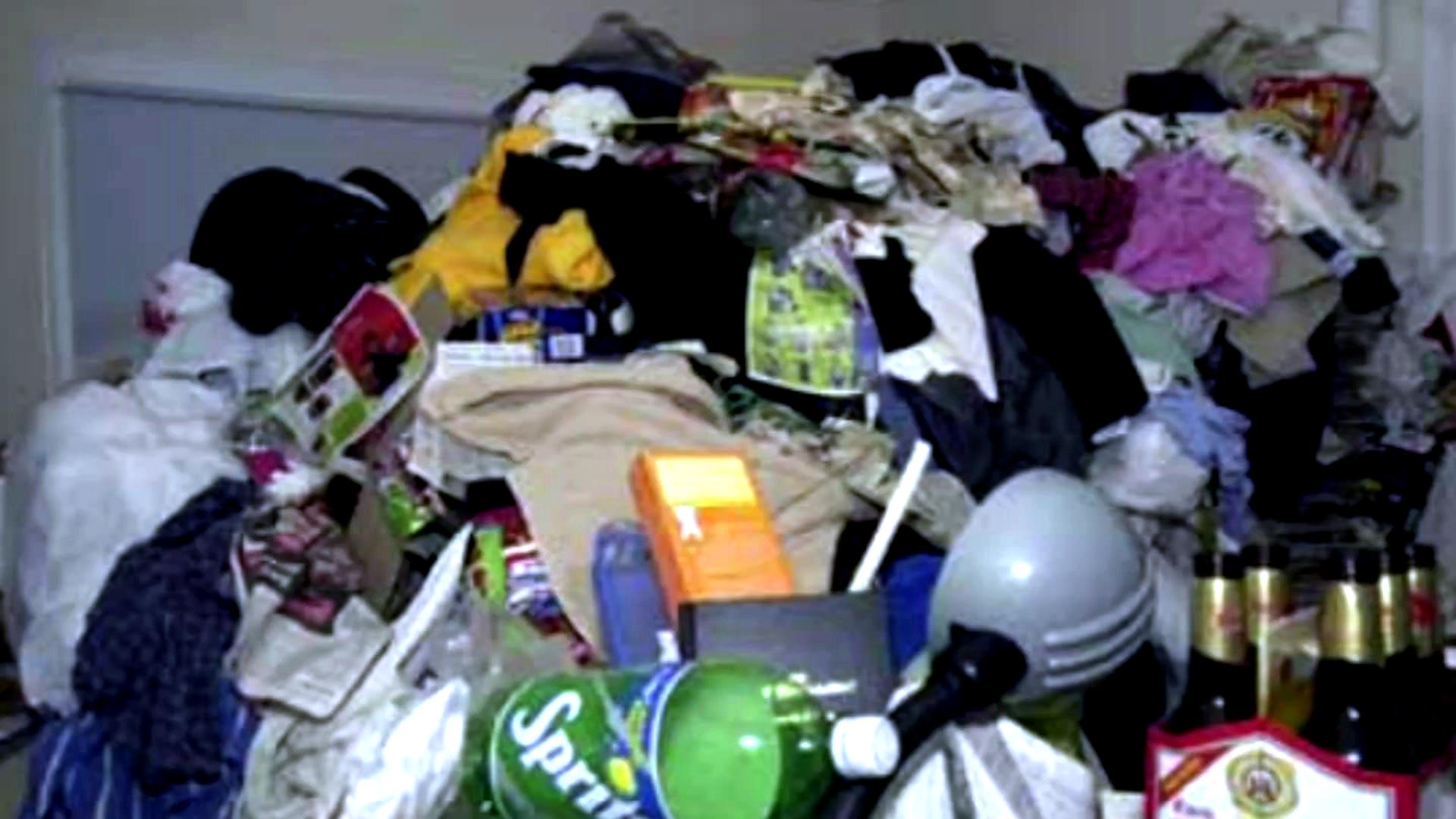Hoarding: Woman embarrassed to have visitors
- Published
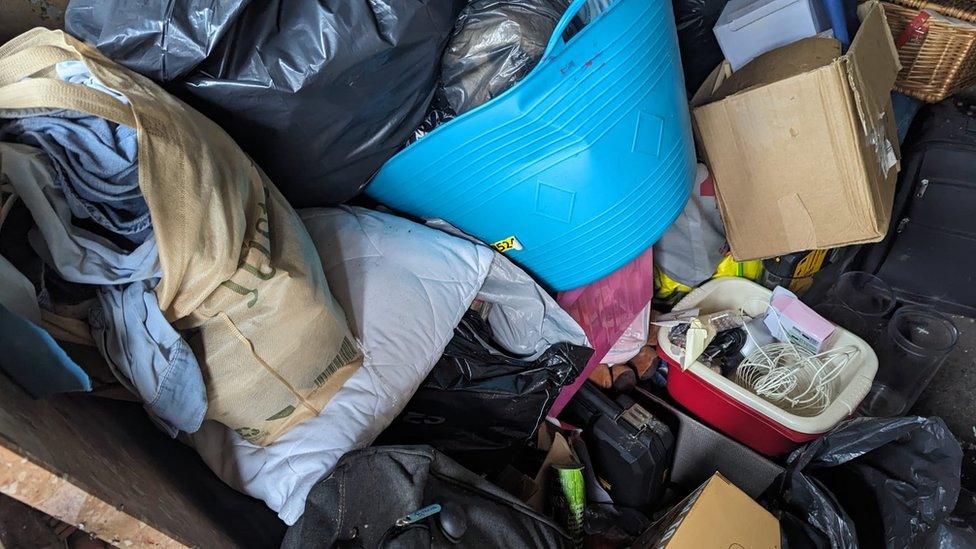
Holistic Hoarding and the new taskforce support people who are struggling with hoarding habits with an "empathetic" approach
A woman whose hoarding habit has left her too embarrassed to have visitors says it is like a "dark secret".
Rosemary says while she sometimes feels she will never be able to overcome the condition, she has hope as she has been receiving treatment to discover the root of the problem.
It comes as a Welsh taskforce calls for hoarding to be better understood as a mental health condition.
Some renters face court ordered possession clearances due to hoarding.
"It's a sad secret," said Rosemary, from south Wales. "You're hiding that side of yourself from everyone else.
"There are very few people who have actually been in my home and, if they have, they've only been in one tiny part of it. I feel quite embarrassed. I don't like people seeing the chaos."
She said she did not know what caused her condition, but suspected it may have stemmed from her parents giving away her belongings without her knowledge when she was a child and a turbulent 10 years of moving home many times, or a symptom of attention deficit hyperactivity disorder (ADHD).
She described her living room as being "completely inaccessible".
'Piled high, from floor to ceiling'
"It's piled high with boxes and bags from the floor, almost to the ceiling, and there is very little room to move in there at all," she said.
At one point, Rosemary was paying about £200 a month for storage space, before managing to lessen the "junk" to a point where it fitted in her home.
"You think 'am I ever going to get through this?'. And sometimes that can make me feel quite tearful and despondent, just feeling as though I'm never going to actually overcome this," she said.
She added that dozens of thoughts "race" through her head each time she attempts to sort things out.
"Let's say it's a plastic container which I no longer need," she said.
"So I'm looking at the container and immediately I'm thinking 'somebody made this, somebody manufactured it, it's got a use'."
She then described wondering what she could do with it, such as taking it to a charity shop, adding: "I wonder if they could use it at a school? It would be so sad if it ends up in in the dump. It'll just not disintegrate for 200 years and that's so sad."
Recently, she has been tackling the issue by considering the root of the problem, an approach she says has brought her a lot of hope for the future.
She hopes to have made enough progress by her next birthday to be able to invite friends over for a tea party.
"Though well-meaning friends or family members would love to swoop in and clear the lot, you always feel like you're under threat of clearance," she said.
"It's not how I want to live. It's not how I perceive myself to be. In fact, I like to be organised and actually like being neat and tidy. It sounds so contradictory, but I don't enjoy having the clutter around me, so it's very frustrating.
"I wish I could just wave a magic wand and make it all go away but, because I can see incremental progress, it's finally given me some hope."
Hoarding experts have joined forces with psychologists, the fire service, and social housing, to protect people from losing their homes when they breach safety rules due to the condition.
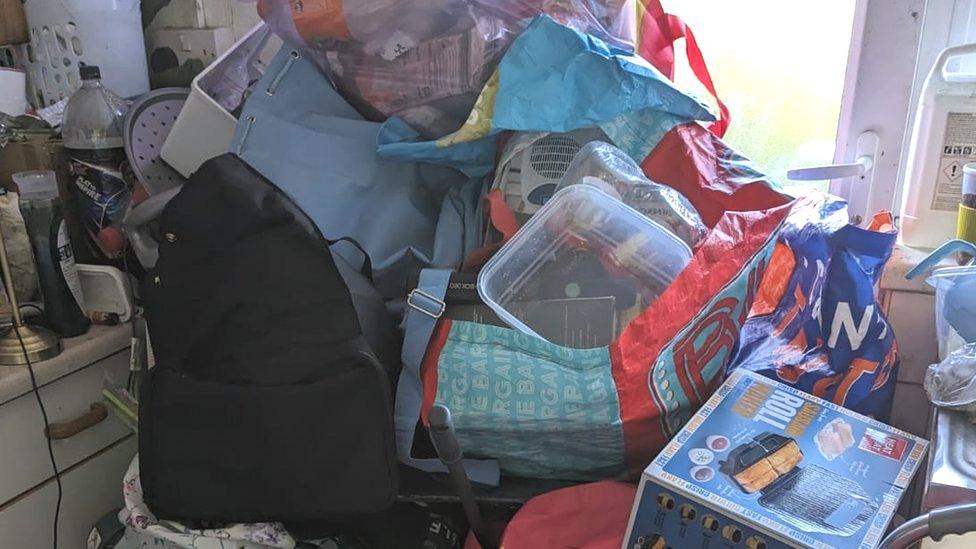
Some renters are faced with forced clearances of their belongings
As a homeowner, Rosemary is not at risk of losing her property. But, in some circumstances, hoarding can lead to a breach of tenancy if a safety risk is posed.
Landlords and housing associations can seek court orders to compel tenants to remove their possessions or become evicted from the property.
Kayley Hyman, director of hoarding training and consultancy service Holistic Hoarding, said hoarding needed to be "back on a par with all the other mental health conditions".
'It's not a quick fix'
Holistic Hoarding has worked on more than 200 cases of hoarding, and prevented 50 evictions and 17 children from going into care.
The team considers the causes of hoarding before they begin clearing away any possessions.
"There's this perception you can fix it in a day if you chuck it all out," said Ms Hyman.
"Unfortunately that is not how it works. We work for up to two years with a lot of our clients. It's not a quick fix."
She added court ordered collections exacerbate the issue, with 97% of their clients who had this imposed upon them relapsing.
Kevin Smith, 49, from Caerphilly, received support from Holistic Hoarding after being subject to seven collections.
"Having someone come in and clear your space is stressful and invasive and, without the right support, it can cause your anxiety to significantly worsen," he said.
"Forced clearances are the worst. I had no control over what was happening, and I relapsed five times, at great financial cost.
"It simply doesn't work."
Mr Smith now runs a peer-led support group to help other hoarders experiencing what he did.
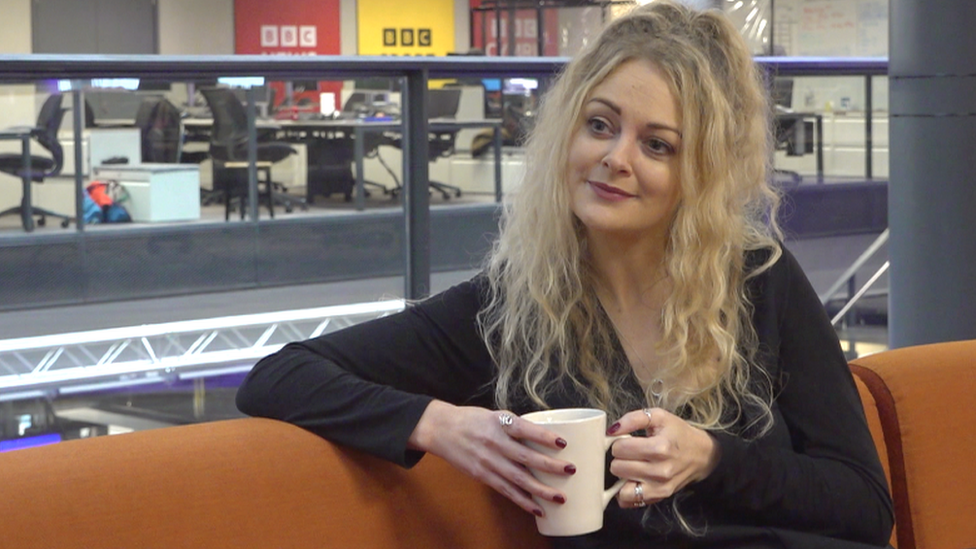
Kayley Hyman says hoarding needs to be viewed "on par" with other mental health conditions
A study published by the National Association of Social Workers found that when agencies focused on clearances, 55% of cases showed no change and 8% got worse.
The taskforce has achieved the support of Caerphilly and Newport councils.
Ms Hyman said: "Rather than [having] disparate voices with very valid concerns, [it's about] bringing them together and uniting all of these services, who all want the same thing…the person to be safe."
Housing association United Welsh signed the taskforce's first "no evictions" policy, which promised eviction notices would not be sent to tenants who were seeking support for their condition.
Craig Singler, director of housing and communities, said the team "believe a sensitive, empathetic approach to supporting people who hoard is the right thing to do".
"This starts with building relationships with residents, so we can have honest conversations and work together... to tackle safety issues," he said, adding that "keeping people safe and able to continue living in their home" should be the priority, with court action seen as a "last resort".


- Published21 December 2017

- Published6 November 2023
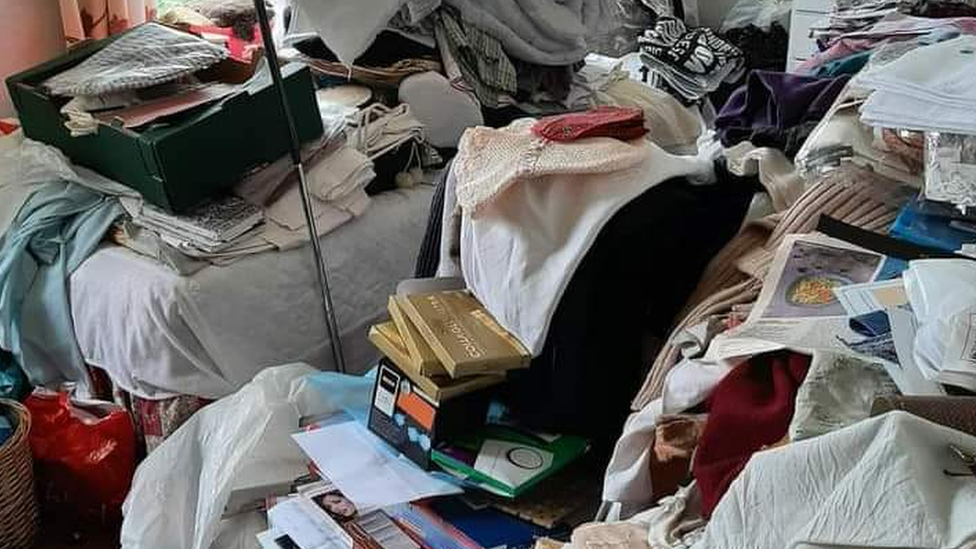
- Published29 January 2018
